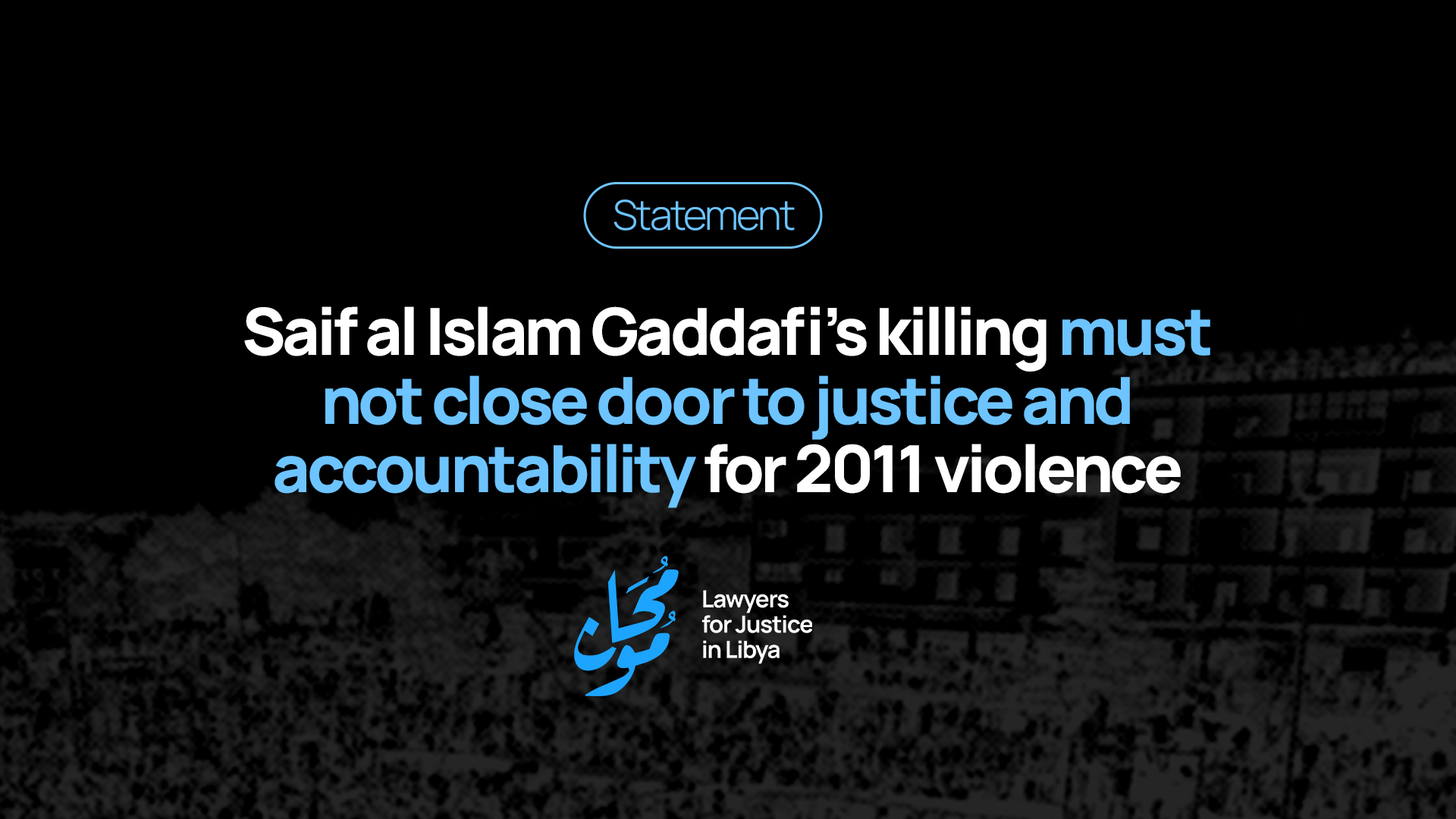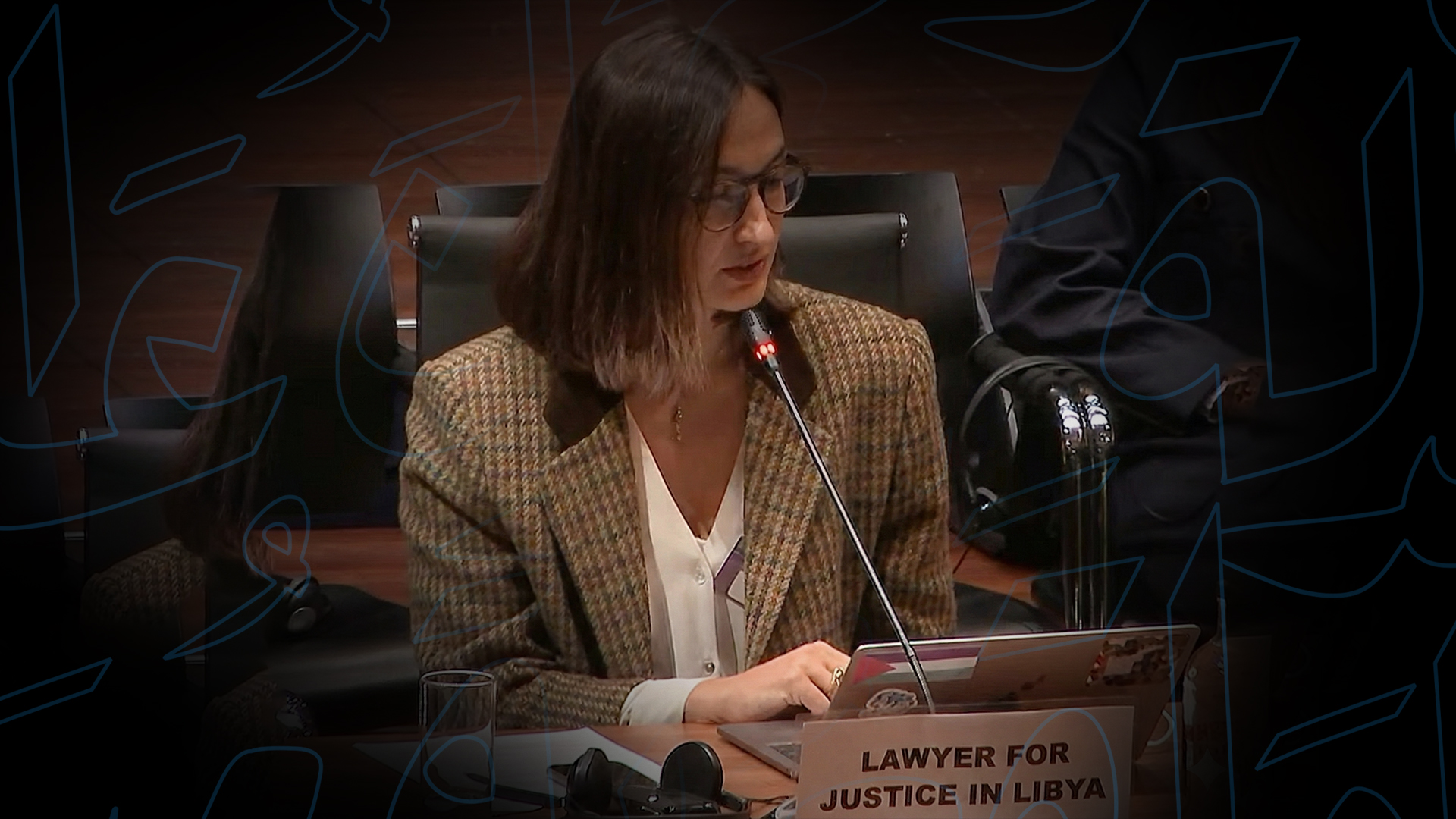LFJL condemns further indiscriminate attacks and summary executions in Libya
LFJL calls on the Libyan state and international community to investigate these fragrant violations of international law and ensure that the perpetrators are held to account.
Lawyers for Justice in Libya (LFJL) strongly condemns the car bomb attack which took place in Benghazi on 23 January 2018, killing tens of civilians and medical personnel, and the apparent reprisal execution that followed on 24 January. LFJL calls on the Libyan state and international community to investigate these fragrant violations of international law and ensure that the perpetrators are held to account.
On 23 January 2018, two car bombs were detonated in the city of Benghazi. The first bomb reportedly went off at around 8.20pm outside Bait Radwan mosque in the district of Salmani as people were leaving evening prayers. Emergency services had already arrived on the scene when the second car bomb exploded, hitting an ambulance. At least 41 people were killed as a result and 80 people were injured in the attack. The following day, images circulated on social media appeared to show a summary execution of nine men at the site of the bombings in apparent retaliation.
LFJL is extremely concerned by this escalation in violence. The car bombing comes less than two weeks after indiscriminate attacks, which are attacks that do not distinguish between military and civilian targets, at Tripoli’s Mitiga airport on 15 January 2018. LFJL has repeatedly stressed that the targeting of protected persons such as civilians and medical personnel, and civilian objects including places of worship, is a flagrant violation of the fundamental principles of International Humanitarian Law (IHL).
Further, the images depicting a group of men being shot at point blank range while handcuffed and blindfolded, apparently conducted as a reprisal to the car bombing, appear to evidence the latest in a series of summary executions. In its statement condemning the car bomb and summary execution, UNSMIL noted that it documented five similar cases of summary executions in 2017 alone. As LFJL has previously asserted, summary executions are arbitrary deprivations of human life which deny survivors of alleged crimes the justice to which they are entitled. As well as constituting a war crime, summary executions are a crime domestically under Article 2 of Law 10 of 2013.
To date, Libya has not been able, and does not seem to have the will, to hold a single individual to account for these serious crimes or any that came before them, meaning that victims and their families are denied their rights to the truth and justice. Meanwhile the perpetrators remain at large and, without any prospect of accountability, are able to continue to harm with impunity.
Libya cannot move towards reconciliation whilst such violent acts are allowed to continue. LFJL’s Transitional Justice Programme Coordinator, Laura McDonnell, stated, “The culture of violence that persists in Libya must be replaced with dialogue and accountability in order for Libya to achieve a peaceful transition. The international community must support the Libyan state in conveying this message to armed actors.” LFJL calls on the international community to support the Libyan state both in the investigation of the car bombing and summary executions and in ensuring a peaceful political transition which recognises the important role that accountability plays in achieving reconciliation.





